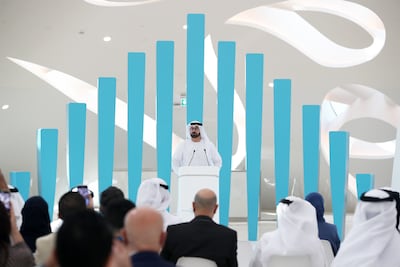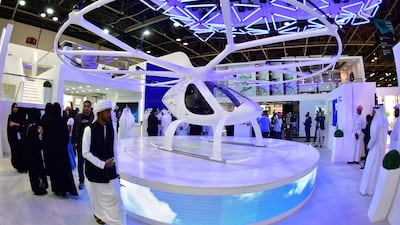President Sheikh Mohamed established the Artificial Intelligence and Advanced Technology Council in Abu Dhabi last week to enhance policy, research and infrastructure in the sector. More broadly, we can see the AI discussion being advanced across government, education and the private sector in this country, with Omar Al Olama, Minister of State for AI, Digital Economy and Remote Work Applications, managing the portfolio at the federal level for the past few years as well as serving on the UN’s high-level advisory board.
The World Government Summit in Dubai this month will specifically focus on AI, gathering experts and practitioners including OpenAI co-founder Sam Altman and Nvidia Corporation’s Jensen Huang. The summit is rarely anything less than a curator of tomorrow’s world – and keen observers will recall that it has been discussing AI and its potential impact upon the world for several years. It will be a compelling few days.
These are a small sample of the multiple signals that the country is thinking deeply and strategically in this space, so why, I wonder, does the broader global discourse about AI so often slip into superficial fear and loathing?
Despite the fact that we are presented with evidence of the practical power and advantages of AI every day – think even of its small applications, such as that machine-generated playlist you were listening to on the way to work or those email suggestions for quick replies that make you seem super productive, for instance – we often find it easier to fall back on believing that artificial intelligence is a vast and imminent threat to livelihoods and employment rather than being an opportunity or a potential source of succour in time-pressed lives.
At Arab Health this week, The National spoke to a tech company from Singapore that had developed a robotic healthcare assistant that, for a purchase price of $70,000, could help with a range of patient-care tasks, such as delivering drugs and meals or disposing of surgical waste.

The company estimates that one unit could easily do the work of three humans, at which point some people’s minds will have inevitably wandered into a dystopian version of the future where darkness quickly descends, jobs are lost and the world is overrun with automation at the expense of real-life work and interaction.
The reality of whether a piece of technology such as this would truly be widely transformative lies somewhere nearer to where we are now: as trite as it may sound, the market will move as the market moves, some hospitals will use these robo-porters, others won’t. Even so, the collective anxiety grows about the perceived creep of AI and technology every time people hear about an innovation that may arrive at the expense of employment opportunities.
Mr Altman refers to the human tendency towards only seeing the liability vision of AI and artificial general intelligence (AGI) as a “two-week freakout”.
He told The Economist last year that when the ChatGPT4 tool was introduced to much fanfare and debate last year, most observers instantly thought that “this changes everything, AI is coming tomorrow, there are no jobs by the end of the year”, before that debate settled on a more measured collective assessment that “GPT4 was a big deal in some sense and did not change the world as much everybody had their meltdown about”.
We see similar concerns expressed about deepfakes, with a string of high-profile incidents of celebrities being targeted by AI-powered image generators for nefarious ends. It is a worrying trend, but is the threat amplified by these gross attacks being carried out against well-known people? Possibly, although every time an ordinary crime victim comes forward, that fear will increase.
The same could be said if significant incidents of deepfakes are identified during the many elections taking place around the world this year, especially if it is deemed to have unduly influenced the outcome of a ballot. Perhaps it is no wonder there is fear and loathing.
Stepping back for a moment, the most likely journey of AI is one of iteration and evolution, rather than a succession of explosive revolutions – certainly, that has already been the journey of successive versions of large language models.
That also means that the sector will require research, moderation, ethical considerations, agile policy formulation and a regulatory framework that achieves a balancing act between innovation and risk management. As many industry experts have pointed out, if you don’t regulate, you risk a form of technological anarchy. Conversely, if you do regulate, you might do so poorly, or ineffectively.
Perhaps the fact that AI has turbocharged development combined with people’s general nervousness about change means that there will always be some sense of foreboding when considering AI. For those who are concerned, the words of Mohammed Al Gergawi, Minister of Cabinet Affairs and chairman of the World Government Summit, may provide assurance.
“AI won’t change the world in the coming five years,” he said at a recent pre-WGS event in Dubai, “but it will do in the coming 1,000 years.”
Change is certainly coming, but it may not arrive as soon as you think.


